Blood Sugar Levels

Alcohol and its Effect on Diabetes
Blood Sugar Support. Alcohol is a depressant. It depresses the central nervous system and affects every organ of  the body because it is absorbed rapidly by the stomach and intestine and enters the bloodstream. Effects of alcohol on the body depends on how much it is consumed. Small amount of alcohol acts as stimulant and make people feel happy and talk a lot while too much alcohol can impair the body. Alcoholic drinks are full of empty calories, have no nutritional value and also has full of sugar. it can negatively alter the blood sugar levels and puts drinkers at a high risk of developing alcohol-related diabetes.
the body because it is absorbed rapidly by the stomach and intestine and enters the bloodstream. Effects of alcohol on the body depends on how much it is consumed. Small amount of alcohol acts as stimulant and make people feel happy and talk a lot while too much alcohol can impair the body. Alcoholic drinks are full of empty calories, have no nutritional value and also has full of sugar. it can negatively alter the blood sugar levels and puts drinkers at a high risk of developing alcohol-related diabetes.
Drinking alcohol not only affects the blood sugar, it also increases the insulin secretion and leads to low sugar in the blood. Too much alcohol interrupts normal production of glucose and the hormones regulating it and leads to high blood sugar levels.
Effects of Alcohol
- Alcohol increases the blood sugar levels because it stimulates appetite which results to overeating. It can affect the will power by increasing bad dietary choices. Some medications should not be taken with alcohol. It can increase blood pressure.
- Too much alcohol can lead to symptoms similar to that of low blood sugar. This includes confusion, sleepiness, blurry vision, headaches, lightheadedness or dizziness, lack of coordination and unconsciousness.
 People with diabetes should avoid mixing drinks and cocktails to prevent increase in blood sugar levels. Women with diabetes should not have more than one drink of alcohol per day and men should limit their drinks to only two per day. Sip drinks slowly and alternate your alcoholic drink with water so you can be clear-headed and to help you hydrated. Food helps slow down alcohol absorption and does not affect production of glucose, so don’t drink on an empty stomach or when your blood sugar is low. If you have to drink, choose the light beers or calorie-free drink mixes to help you keep your sugar in check.
People with diabetes should avoid mixing drinks and cocktails to prevent increase in blood sugar levels. Women with diabetes should not have more than one drink of alcohol per day and men should limit their drinks to only two per day. Sip drinks slowly and alternate your alcoholic drink with water so you can be clear-headed and to help you hydrated. Food helps slow down alcohol absorption and does not affect production of glucose, so don’t drink on an empty stomach or when your blood sugar is low. If you have to drink, choose the light beers or calorie-free drink mixes to help you keep your sugar in check.
Diabetic people should be wary of drinking alcoholic drinks. Stay on the recommended dosage to prevent reduction of the effectiveness of insulin and wipe out their energy storage. Check your blood sugar levels before and up to 24 hours after drinking and before going to bed.
Consumption of carbohydrates before drinking is advised to help keep steady blood sugar level. It has been found that moderate drinking of alcohol and taking in Blood Sugar Support supplements can lower the risk of developing type 2 diabetes than those who do not. However, it is best to stay on the recommended consumption.
What is Hyperglycemia?
Natural Blood Sugar Supplements. Hyperglycemia is the increased glucose level or sugar in our blood. The food we ate are broken down into glucose which are carried into our blood to all the cells in our body and are converted into energy with the help of insulin hormone produced by our pancreas. Insulin helps move glucose into the cells.  The body at times stop producing insulin as in the case for type 1 diabetes or the insulin produced does not work properly as in the case of type 2 diabetes. When glucose stay in the blood and is not carried into the cells of the body, this result in development of high blood sugar levels. Uncontrolled high sugar level may lead to dehydration and more serious complications may develop.
The body at times stop producing insulin as in the case for type 1 diabetes or the insulin produced does not work properly as in the case of type 2 diabetes. When glucose stay in the blood and is not carried into the cells of the body, this result in development of high blood sugar levels. Uncontrolled high sugar level may lead to dehydration and more serious complications may develop.
Diabetes mellitus
Diabetes mellitus causes high blood sugar or hyperglycemia. Hyperglycemia maybe caused by too much intake of carbohydrates which the body of a diabetic person is unable to convert into energy fast enough and so resulting to high blood sugar levels.
Another cause of hyperglycemia is when insulin production is not controlled either thru injection or taking medicines for insulin production. Diabetic people has to balance diet, medication and physical activity to prevent increased blood sugar levels.
Other possible causes of hyperglycemia or high blood sugar levels are stress, no exercise or minimal exercise, illness, surgery or infections and certain drugs like steroids can also affect blood sugar levels..
Common symptoms of hyperglycemia includes dry mouth, thirst, frequent urination and night urination, dry and itchy skin, blurry vision, weight loss, increased appetite and fatigue or drowsiness.
If hyperglycemia persists for hours and dehydration results, other symptoms include difficulty in breathing, rapid weight loss, dizziness when standing, increased confusion and drowsiness and even unconsciousness or coma.
Home remedies or self-care
Home remedies or self-care for hyperglycemia or high blood sugar is regular check of blood glucose meter if it is higher than normal. Regular meals and scheduled medication should be observed. Sugar-free and caffeine-free liquids must only be taken. In addition, check your urine for ketones and take blood sugar readings until it is back to normal.
 Ways to lower blood sugar level includes regular exercise, dietary regime solely for diabetics should be followed, and Natural Blood Sugar Supplements recommended by your doctor.
Ways to lower blood sugar level includes regular exercise, dietary regime solely for diabetics should be followed, and Natural Blood Sugar Supplements recommended by your doctor.
When hyperglycemia persists for more than three days or when ketones appear in your urine, you should immediately call your doctor to prevent complications.
Diabetics should follow their recommended dietary regimes, check their blood sugar regularly, do the recommended exercise daily and take the medicines as prescribed. A planned daily activities with a planned diet and Natural Blood Sugar Supplements will balance and manage blood sugar levels.
The Facts of Low Blood Sugar
Blood Sugar Control. Also known as hypoglycemia, low blood sugar may be a dangerous condition. Diabetics are prone to this condition especially those who takes medicine for increased insulin in the body. Too much of this medicines, eating less than normal, skipping meals, or too much exercise can lead to low blood sugar for diabetics.
Glucose or blood sugar is the main source of energy for the body which comes from the food we eat. The body’s main source of glucose is carbohydra tes such as potatoes, bread, cereal, rice, vegetable and milk. This glucose is absorbed into your bloodstream and to your cells wherein tit is converted to energy with the help of insulin hormone produced by the pancreas. Excess glucose are stored in your liver and muscles or are converted into fat and used for energy when needed. Your body needs glucose for it to function normally. A drop of your glucose level needs immediate treatment to prevent more serious development of symptoms.
tes such as potatoes, bread, cereal, rice, vegetable and milk. This glucose is absorbed into your bloodstream and to your cells wherein tit is converted to energy with the help of insulin hormone produced by the pancreas. Excess glucose are stored in your liver and muscles or are converted into fat and used for energy when needed. Your body needs glucose for it to function normally. A drop of your glucose level needs immediate treatment to prevent more serious development of symptoms.
Symptoms of low blood sugar includes blurry vision, sudden nervousness and mood swings, unexplained fatigue, headache, pale skin, shaking, hunger, dizziness, skin tingling, difficulty in sleeping, loss of consciousness, seizure, coma, sweating, and trouble concentrating. Hypoglycemic persons may not notice that their blood sugar has dropped. Very low blood sugar is a medical emergency and needs immediate medical treatment to prevent eventual seizure, faintness or even coma.
 Causes of low blood sugar include diabetes. Diabetes uses insulin to manage their blood sugar levels. And takes medicines that increase insulin and treatments to help the body use the glucose in the blood. Too much of these medicines may result in dropping of blood sugar at a very low level. Skipping meals, eating later than usual and eating less than normal but taking medicine at the normal time can also result to low blood sugar levels. In addition, drinking alcohol, excess and unplanned physical exercise also causes the drop of blood sugar.
Causes of low blood sugar include diabetes. Diabetes uses insulin to manage their blood sugar levels. And takes medicines that increase insulin and treatments to help the body use the glucose in the blood. Too much of these medicines may result in dropping of blood sugar at a very low level. Skipping meals, eating later than usual and eating less than normal but taking medicine at the normal time can also result to low blood sugar levels. In addition, drinking alcohol, excess and unplanned physical exercise also causes the drop of blood sugar.
Other causes of blow blood sugar include quinine medicine, hepatitis or kidney disorders, endocrine disorders and tumor which produces excess insulin.
Snacks made of carbohydrates like granola bars, fresh or dried fruits, cookies and pretzels should be on hand for in case your blood sugar levels are too low. Glucose tablets or glucagon are also available that could raise blood sugar at a faster rate.
It is best to regularly check your blood sugar control to prevent episodes. Bring with you at all times carbohydrate-rich snacks in case of emergencies outside your home. Be sure to eat your meal before doing your exercise because it uses up energy and may cause blood sugar to drop. And finally, follow your doctor’s advice on how to manage your blood sugar and check with him often to maintain your health and avoid unwarranted emergencies and complications.
The Facts of Low Blood Sugar
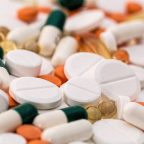
Vitamins Good for Diabetics
Vitamins for Diabetics. Vitamins or Vital Amino Acid are the nutrients our body need to maintain the proper functions of metabolism and immunity. Vitamins are vital because the body cannot manage itself without the help of these vitamins. These vitamins are acquired from outside sources like food and supplements. One major function of 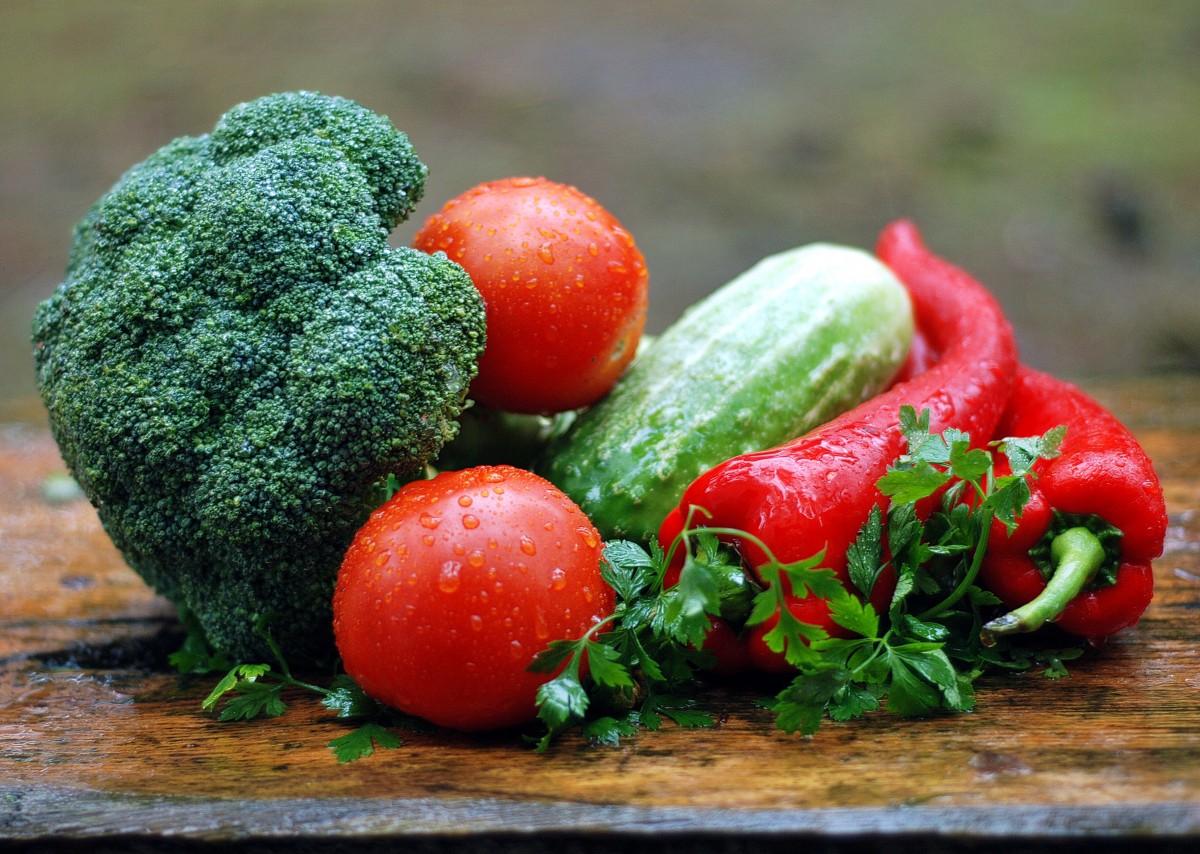 vitamins is for proper blood sugar control.
vitamins is for proper blood sugar control.
Diabetics are found to lose more vitamins than retaining them like when they frequently urinate. Washing out excess sugar when glucose are high in the blood also washes out water-soluble nutrients. Losing vitamins can worsen the ability of the body to stabilize blood sugar. It is therefore advisable to eat varied diet rich in natural vitamins.
Two Kinds of Vitamins
Water Soluble Vitamins. Water soluble vitamins cannot be stored in our body. After the body takes what it needs from food, it excretes the remaining excess as waste. Water soluble vitamins are Vitamins B1, B2, B3, B6, B12, C, Biotin, and Folate. Since diabetics tries to get rid of extra sugar from their body, they lose more water-soluble vitamins more than others. It is recommended therefore, that diabetics take these vitamins in larger than normal doses.
Fat Soluble Vitamins. Fat soluble vitamins are Vitamins A, D, E and K. These vitamins are stored in our fat cells for longer period than the water-soluble vitamins.
Diabetics needs to increase their intake of the appropriate vitamins to help their body to use insulin and thus stabilizing their blood sugar levels.
Six Vitamins That Are Best Supplements For Diabetics
Multivitamins. Multivitamins and mineral supplements significantly reduces infections and sickness in diabetic persons. Taking high quality multivitamins also reduces the risk of diabetes.
Vitamin B3. Niacin or Vitamin B3 have shown to help lower blood sugar, reduce fatty liver and prevent neuropathy.
 Vitamin B6 and B12. Kidney damage cause by diabetes is said to have been reduced with the help of vitamin B6 and B12. It also improved arterial health of diabetics.
Vitamin B6 and B12. Kidney damage cause by diabetes is said to have been reduced with the help of vitamin B6 and B12. It also improved arterial health of diabetics.
Vitamin C. diabetics are said to have low concentration of Vitamin C. Vitamin C is said to improve the widening of the arteries and thereby allowing sufficient flow of blood for patients with non-insulin-dependent diabetes mellitus.
Vitamin E. Vitamin E is a fat-soluble antioxidant. It improves glucose control and protects blood vessels from the damaged caused by diabetes.
Vitamins should be taken with food for the easy absorption of the nutrients into the body. It is best to follow a healthy diabetes diet together with a regular exercise with the best vitamin supplement to achieve stability in blood sugar level.![]()
![]()
![]()
![]()
![]()
![]()

Warning Signs and Symptoms Common to both Types of Diabetes
Diabetes is a condition wherein a person has higher blood sugar levels than the normal. It is a metabolic disease that is caused by inadequate production of insulin or the cells of the body do not properly respond to insulin, or both.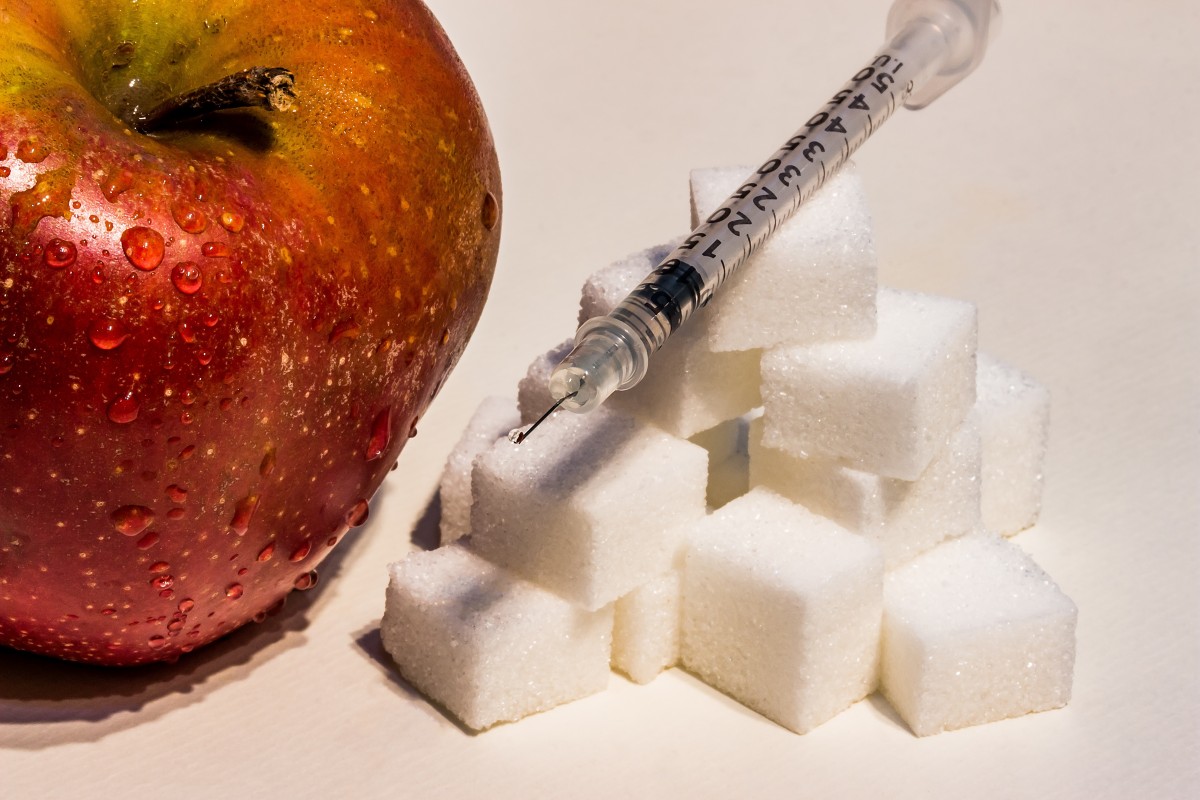
Warning signs of diabetes are so mild that they are not noticeable especially in the case of type 2 diabetes. Only until they feel the long-term damage caused by diabetes do some people find out that they have the disease. In type 1 diabetes, the symptoms are quick and are much more severe. The common symptom of diabetes is increased levels of glucose or blood sugar in your blood.
Warning Signs and Symptoms Common to both Types of Diabetes
Fatigue and hunger. The food you eat is converted into glucose by your body for the cells to use for energy. Insulin helps bring the glucose in. If your produce inadequate insulin or when the cells rejects the insulin your body produce, glucose cannot get in and you will have no energy and thus feel tired and hungry more than the usual.
Frequent Urination. When diabetes raised up your blood sugar, your kidney cannot take all the glucose that is reabsorbed by the body land so excretes the excess ink the urine. The average rate of urination is between four and seven times. Diabetes may go for more than usual times.
Dry mouth and Itchy skin. Due to your frequent urination, you loss lots of fluids. You get dehydrated, your mouth feel dry and you feel itchiness in your skin.
Blurred vision. The changes in the fluid level in your body causes your lenses to swell up and changes its shape, making it lose the ability to focus.
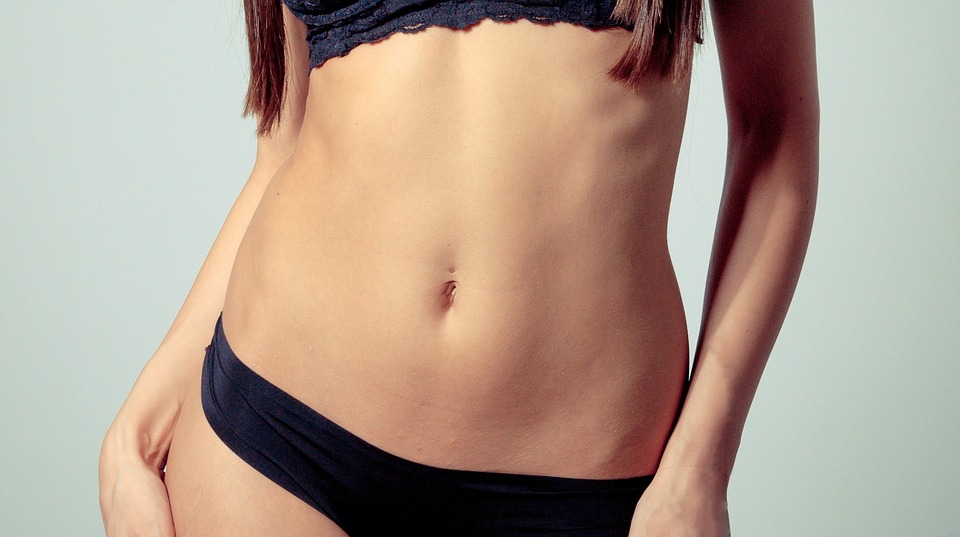 Weight Loss. When you have diabetes, your body cannot anymore get energy from the food you eat. It derives energy by burning fat and muscles instead, making your loss weight.
Weight Loss. When you have diabetes, your body cannot anymore get energy from the food you eat. It derives energy by burning fat and muscles instead, making your loss weight.
Nerve damage. Diabetes makes you feel pain and numbness in your feet or legs as a result of nerve damage. Another nerve damage results to slow-healing sores or cuts because it affects your blood flow.
Nausea and vomiting. The burning of fats for energy instead of getting it from food you eat results to production of ketones. Ketones in diabetic ketoacidosis makes your stomach feel sick.
The moment you start feeling these warning signs, it is time to go to the doctor and have a scheduled diabetic test. With proper diabetes diet coupled with regular exercise and recommended medications, diabetic persons may live an active and productive long life.![]()
![]()
![]()
![]()
![]()
![]()

How to Maintain Blood Sugar Level
Blood sugar or glucose is the main source of energy that is obtained from the food we eat. Glucose is the main sugar in our body that is carried to all cell through the blood stream. Our body regulates the level of blood sugar.
High Blood Sugar is manifested when you are losing weight, have blurred vision, very thirsty and tired and have frequent urination. When you have high blood sugar level, you may feel sick to your stomach, throw up or feel faint. It also causes you to lose fluid.
Low Blood Sugar is known as hypoglycemia. It is caused by too much insulin, delayed meal, missed meal, too much exercise or too much alcohol. It may also be a side effect from medicines taken for other health problems.
Ways of Maintaining Blood Sugar
Eat a low-processed and anti-inflammatory diet. Balancing carbohydrates and sugar with protein and fats in your diet and getting it from whole and real food is one way of managing and treating and preventing diabetes. Consuming carbs and sugar with protein fiber and healthy fats can slow down the absorption into the bloodstream of sugar, aid in managing your appetite and helps in your digestion and metabolism. Healthy fats include virgin coconut oi, nuts and seeds and avocado. High-fiber foods include veggies, whole pieces of fruits and beans and grains.
Other foods and drinks that also can help stabilize blood sugar are green tea, cinnamon, apple cider vinegar, herbal tea, spices and fresh herbs.
Use alternative carbs and sweeteners. To aid in maintaining blood sugar, avoid using refined flour and added sugars like cane sugar, beet sugar or beet juice. Use natural sweeteners like raw honey, dates, pure maple syrup or molasses in small portions daily. Whole grain flours should be used or coconut flour. Drink water, seltzer, herbal tea or black tea and coffee only. And coffee should be taken only up to two cups. Stay away from sweetened alcoholic drinks.
Regular exercise. Exercise can manage blood sugar. It helps lower blood sugar as the cells in your muscles take up more glucose for energy and tissue repair when you do short exercise while helps make cells more susceptible to insulin and helps prevent its resistance when doing long-term exercises. Exercises like cycling, running, swimming and lifting weights increases insulin sensitivity enabling your cells to better take up glucose during and after doing exercises.
 Manage stress. Stress raises release of cortisol, the stress hormone, and increases cravings for “comfort foods” and interrupts sleep. These factors cause high blood sugar level. Take time to de stress or try coping up with life struggles by doing the natural stress relievers like exercise, mediation and yoga. Spend more time outdoors, talk with friends and family or joining groups in your community are also helpful for diabetics and insulin resistant persons to manage stress and eventually lower down blood sugar.
Manage stress. Stress raises release of cortisol, the stress hormone, and increases cravings for “comfort foods” and interrupts sleep. These factors cause high blood sugar level. Take time to de stress or try coping up with life struggles by doing the natural stress relievers like exercise, mediation and yoga. Spend more time outdoors, talk with friends and family or joining groups in your community are also helpful for diabetics and insulin resistant persons to manage stress and eventually lower down blood sugar.
Get enough sleep. Lack of sleep can increase stress and appetite. These hormones like cortisol makes you hungry and crave for sugary snacks. Too little sleep, poor quality of sleep and sleeping at the wrong time impair secretion of insulin. In order to balance blood sugar, try to get enough hours of sleep of between seven to nine hours and stick to it.
Be aware of changes in your body. There are common symptoms that cannot be ignored and would indicate that you have fluctuating blood sugar levels and should manage the same. Fatigue, sugar cravings, thirsty all the time, weight loss, mood swings, frequent infections, heavy breathing and trouble exercising are one of these signs that should not be taken for granted. Manage your blood sugar, take in natural supplements that can help. Stabilize the level by taking on a healthy diet regime.![]()
![]()
![]()
![]()
![]()
![]()

Balancing Blood Sugar
Blood sugar is the concentration of glucose in the blood that is derived from the food you eat. It is the main source of energy that blood carries to all cells of your body. Blood sugar levels fluctuates depending on the food we eat. Too high or too low blood sugar can make you sick.
Diet nowadays often is the main cause of unstable blood sugar level like processed foods, carbohydrates and sugar. However, there are food that are naturally helpful in balancing blood sugar in our body.
Food that Helps Balance Blood Sugar Levels
Turmeric. Turmeric has been used in East India and Middle East as a spice and as medicinal herb. It is known for its anti-inflammatory effects and is a strong antioxidant. The compounds found in turmeric has shown to help improve insulin sensitivity. It regulates the activation of genes and enzymes in the liver to stabilize the blood sugar.
Apple Cider Vinegar. Apple cider vinegar is a home remedy that has great health benefits that include dropping blood pressure, improves weight loss, stabilize blood sugar and skin health. its acetic acid content combined with meals helps control blood sugar fluctuations. It also improves digestion and reduces the cravings for carbohydrates.
Coconut. Known as an all-around food is best to be included in your diet. It contains a healthy fiber that stabilizes blood sugar when consumed with other carbs. There are lots of coconut based products that provide benefits for helping to balance blood glucose or blood sugar. There is coconut flour, butter, coconut flakes, coconut-based oil, butter and milk that can be incorporated with your diet and improve your health.
Cinnamon. Cinnamon is rich in antioxidant and helps in stabilizing blood sugar and aids in fighting candida. It improve insulin sensitivity and helps the efficient transport of glucose from the blood into the cells.
Raw Chocolate. In its raw form, chocolate it one of the most nutritious food known to man. It is also an antioxidant and is a good source of minerals like magnesium and chromium. Chromium in chocolates helps stabilize blood sugar and helps in reducing sugar cravings by improving the function of insulin in the body. It also has zinc that aids to stabilize blood sugar.
Organic Coffee. Organic coffee has antioxidants and minerals in caffeine which help improve metabolism of glucose and insulin sensitivity. It improves production of ketones which is a source of healthy fats for energy and eliminates blood sugar fluctuations.
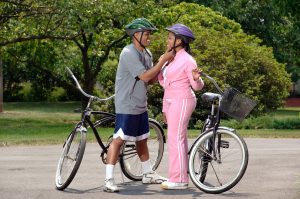 Olives and Olive Oil. Has antioxidants that lessens chronic inflammation that causes blood sugar imbalance. It helps protect that body from the complications of diabetes like neuropathy and heart disease.
Olives and Olive Oil. Has antioxidants that lessens chronic inflammation that causes blood sugar imbalance. It helps protect that body from the complications of diabetes like neuropathy and heart disease.
Avocados has minerals, fiber and healthy fats that aid in stabilizing the level of blood sugar.
Lemons and Limes has citric acid that helps lower glycemic contents in meals. It helps stabilize blood sugar.
Green Tea. Green tea has antioxidants that help improve burn fat and keeps blood sugar levels in check to lessen the risk of diabetes and heart disease.
Consuming any of these food in its natural state or as supplements helps improve stabilize your blood sugar. It is therefore good to take time to work on improving your health and be conscious of your diet.
Balancing Blood Sugar

How Do You Know You Have Diabetes?
Diabetes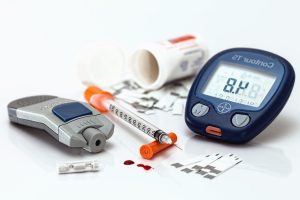 is disease that involves the inability of the pancreas to produce insulin or produces very minimal insulin that helps the body to store and use sugar and fat from the food we eat. The body is unable to use and store glucose.
is disease that involves the inability of the pancreas to produce insulin or produces very minimal insulin that helps the body to store and use sugar and fat from the food we eat. The body is unable to use and store glucose.
Two Types of Diabetes
In type 1 diabetes, the insulin is no longer produced by the body. to survive, diabetics needs to take insulin injections daily. Type 1 diabetes usually develops in children or young adult or it can occur at any age.
Type 2 diabetes is a result of inability of the body to properly use insulin also known as insulin resistance or when the body does not produce enough insulin. This usually affects people over 40 years old, due to family history or overweight.
Common Signs and Symptoms
Fatigue and hunger. The body is unable to use glucose for energy because there is not enough insulin to bring glucose in.
Frequent urination. Diabetes pushes your blood sugar up causing the kidney to make more urine and when you pee a lot, you get thirsty a lot also.
 Dry mouth and itchy skin results because you pee a lot, the fluid is diminished and will make you dehydrated and dries your skin which in turn makes it itchy.
Dry mouth and itchy skin results because you pee a lot, the fluid is diminished and will make you dehydrated and dries your skin which in turn makes it itchy.
Numbness in the legs and feet and pain may be felt because nerve is damaged.
Slow-healing sores or cuts results because high blood sugar alters your body ability to heal wounds.
Weight loss. The body burns muscle and fat to get energy instead of deriving it from your food.
Nausea and vomiting. When your body burns fats, ketones is produced which can make you feel sick to the stomach.
Yeast infections between fingers and toes, under the breast and in or around your organs.
When you have any of these symptoms or you are over 40 years old, early detection is very crucial to avoid possible complications or nerve damage and heart trouble. Switch to a healthy lifestyle by adding more nutritious foods in your diet, natural supplements, and some exercise to avoid any health problems.![]()
![]()
![]()
![]()
![]()
![]()

Effects of High Blood Sugar and Ways to Maintain its Normal Level
Blood sugar level is raised by glucose, the main sugar found in the blood. This sugar is from the different types of food we eat that contain carbohydrates. However, other factors such as stress and the timing of the mealtime can also affect how the blood sugar is regulated.
also affect how the blood sugar is regulated.
When cells are not absorbing glucose, high blood sugar results which damages nerves, blood vessels and organs that would ultimately result to dangerous complications. Excess glucose in the bloodstream or hyperglycemia is a sign of diabetes.
Diabetes is either type 1 wherein the person with this type don’t make insulin. Or type 2 diabetes wherein the body does not use insulin properly. It is therefore important to regularly check blood sugar level and to watch out for symptoms that would indicate high sugar level.
Signs And Symptoms Of High Blood Sugar
- You pee a lot and drink a lot. Too much sugar in the blood which spills into urine. Making you pee a lot and thirsty. You also lose weight.
- You are tired all the time. This happens when the cells don’t have enough glucose and so has low energy.
- Thicker blood sugar making it difficult to get to small blood vessels.
- Vision loss. Blood sugar that is high can cause blurry vision and can harm eye health.
- Peripheral neuropathy. Prolonged high blood sugar level can lead to numbed toes and tingling fingers.
- Feet infection. High blood sugar can result to lose sensitivity in the feet.
- Loss of libido. Excess sugar in the blood results in erectile dysfunction and vaginal dryness.
- Constipation or frequent diarrhea. The nerves that control the internal body functions are affected by the high sugar level.
- Kidney problems. Increased level of blood sugar in the tiny vessels of the kidney damages its normal function which would eventually require dialysis or transplantation.
- Stroke and heart attack. Diabetes can elevate the risk of heart disease and stroke.
- Alzheimer’s disease. Blood vessel damage due to high blood sugar level can affect your brain and impair thinking and memory.
- Tooth decay. Sugar in the saliva can leave plaque on the teeth. High blood sugar causes also painful gums and bleeding.
- Urinary tract infection. Diabetes can also damage the nerves that control the bladder function. There is difficulty in emptying the bladder or in retaining and releasing urine.
- Dry skin. There is body fluid loss and skin becomes cracked, dry and itchy.
- Risk factor. People who are overweight, have high blood pressure, physically inactive and have a family history are at risk for diabetes. It is therefore advisable to check blood sugar level repeatedly to have it get treated early land avoid possible complications.
How To Maintain Normal Blood Sugar
- Eat a healthy diet. Balance carbohydrates and sugar with protein and fats, Fiber and healthy fat can help s
 tabilize blood sugar.
tabilize blood sugar. - Natural Supplements. Take in natural supplements to help regulate your blood sugar.
- Switch carbs and sweeteners. Avoid refined sugar and use instead natural sweeteners.
- Get regular exercise. Exercise helps your muscles to take up more glucose and use it for energy and tissue repair. This process lowers blood sugar.
- Manage stress. Manage your stress because high stress can raise blood sugar and increase the level of stress hormone cortisol. Stress relievers like yoga, meditation and exercise can be relaxing and helps diabetes with insulin resistance.
- Enough rest. Lack of sleep can elevate stress and appetite hormones. Too little sleep, poor quality and wrong times when sleeping can impair insulin secretion. Stick to a schedule of sleep and aim to have longer sleeping hours
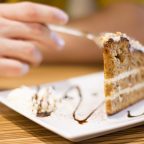
What is Blood Sugar?
Blood sugar is also known as blood glucose. It the main sugar found in the blood. Glucose is a simple sugar that is the primary source of energy and is important for the normal function of some tissues. Glucose is carried by your blood to all the cells in your body to use for energy. It is particularly needed by the normal function of the human brain. It is stored in the skeletal muscles and liver cells in the form of glycogen.
The body regulates blood sugar levels to maintain metabolic homeostasis. It is transported via the bloodstream to the other tissues in the body from the intestines or liver. Glucose in the cell tissues is regulated by a hormone produced by the pancreas called insulin.
Effects of High and Low Blood Glucose Level
- Hyperglycemia. When glucose levels are higher than normal, it causes inflammation in the blood vessels and nerves and causes diabetes. The normal function of insulin in keeping sugar in normal range is damaged when you have diabetes.
- Hypoglycemia. Low blood sugar level also causes potential health problem. It can cause dizziness, confusion or fainting.
Normal Blood Sugar Levels
- Fasting. Under the official ADA recommendation, the normal level for a person without diabetes is 70-99 mg/dl (3.9-5.5 mmol/L). Person with diabetes is 80-130 mg/dl (4.4-7.2 mmol/L)

- 2 Hours after meals. Normal for person without diabetes is Less than 140 mg/dl (7.8 mmol/L) and the official ADA recommendation for someone with diabetes is Less than 10 mg/dl (10.0 mmol/L)
Blood sugar level is usually lowest in the morning and before the first meal in a day. It rises in an hour or two after taking your meals. Blood sugar levels beyond the normal range indicates medical condition.
Having too much glucose in your blood may result to serious problems. Too high blood sugar levels results to diabetes. But even person without diabetes may have serious problems when their blood sugar levels are too high or too low. Regular exercise, maintaining a regular schedule of eating and taking the recommended medicine may help regulate your blood sugar.![]()
![]()
![]()
![]()
![]()
![]()
